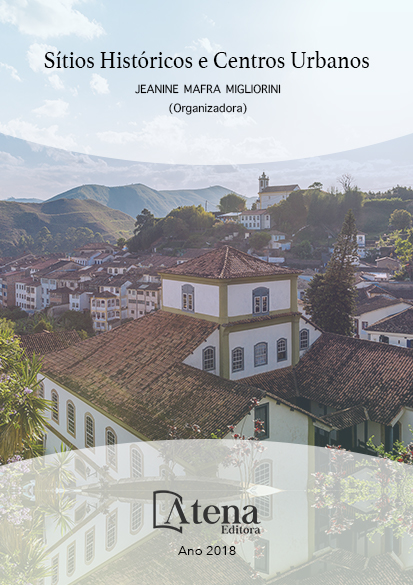
A UFBA NA SALVAGUARDA DO PATRIMÔNIO CULTURAL BRASILEIRO: UMA TRAJETÓRIA PIONEIRA NA PESQUISA E NA FORMAÇÃO ACADÊMICO-PROFISSIONAL PARA A RESTAURAÇÃO DE MONUMENTOS.
No Brasil, o ensino e a prática
das intervenções no patrimônio arquitetônico
assumem caráter científico quando da
institucionalização do restauro como um campo
de pesquisa dentro das universidades, no que
a UFBA teve papel determinante. Em 1974 é
lançado o CECRE, primeiro curso no Brasil
visando à capacitação técnica de arquitetos
para atuarem no restauro, que se fixa na
UFBA, onde também é fundado o primeiro
centro brasileiro de pesquisas científicas na
área, o NTPR. Mais tarde, essa estrutura de
ensino e pesquisa se amplia e se consolida
com a criação do PPGAU, com linhas de
pesquisa em mestrado e doutorado voltadas
para patrimônio e restauro. O retorno de alunos
egressos do CECRE e do PPGAU aos seus
locais de origem, tanto para atuar na prática
profissional, como nos órgãos de preservação,
nas universidades e na criação de novos
cursos e centros de pesquisa, foi responsável
pela disseminação de um conhecimento que
foi produzido aqui de forma pioneira. Nesses
mais de 30 anos, o pioneirismo e o aparato
científico da UFBA no campo da restauração
arquitetônica possibilitaram: no ensino, a
atração de pesquisadores e profissionais de
todas as partes do país e inclusive do exterior,
que vieram aqui buscar formação específica;
na pesquisa, o desenvolvimento de tecnologias
para a restauração de vários monumentos
históricos no Brasil e no exterior. Dessa
forma, a UFBA é, portanto, um polo brasileiro
de ensino, pesquisa e difusão no campo da
restauração arquitetônica e tal estrutura tem
papel fundamental na salvaguarda do nosso
patrimônio cultural.
A UFBA NA SALVAGUARDA DO PATRIMÔNIO CULTURAL BRASILEIRO: UMA TRAJETÓRIA PIONEIRA NA PESQUISA E NA FORMAÇÃO ACADÊMICO-PROFISSIONAL PARA A RESTAURAÇÃO DE MONUMENTOS.
-
DOI: Atena
-
Palavras-chave: pesquisa científica; ensino; universidade; UFBA; restauração.
-
Keywords: scientific research; teaching; university; UFBA; restoration.
-
Abstract:
In Brazil, the teaching and practice
of interventions in architectural heritage take a
scientific character when the restoration was
institutionalized as a field of research within
the universities, in which aspect UFBA played
a determining role. In 1974, CECRE was
launched as the first course in Brazil aiming
technical training of architects to work in the
restoration, which is fixed at UFBA, where the
first Brazilian Scientific Research Center in
this area – NTPR, is also founded. Later, this
teaching and research structure expands and
consolidates with the creation of PPGAU, with
post-graduation research lines focused on
heritage and restoration. The return of students graduated from CECRE and PPGAU
to their places of origin, either to professional practice or to work in the preservation
government institutions, in the universities and also in the creation of new courses and
research centers, was responsible for disseminating knowledge that was produced
here in a pioneering way. In more than 30 years, the pioneering and scientific apparatus
of UFBA in the field of architectural restoration have made possible: in the teaching
field, the attraction of researchers and professionals from all parts of the country and
even from abroad, who came here to seek specific training; in the research field, the
development of technologies for the restoration of several historical monuments in
Brazil and abroad. Thus, UFBA is therefore a Brazilian pole of teaching, research and
diffusion in the field of architectural restoration and such structure plays a fundamental
role in safeguarding our cultural heritage.
-
Número de páginas: 15
- Renata Lucena Gribel


